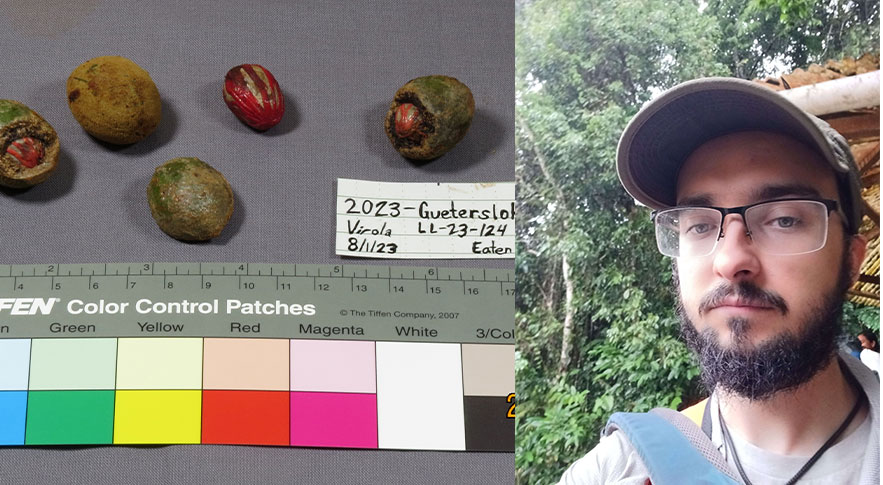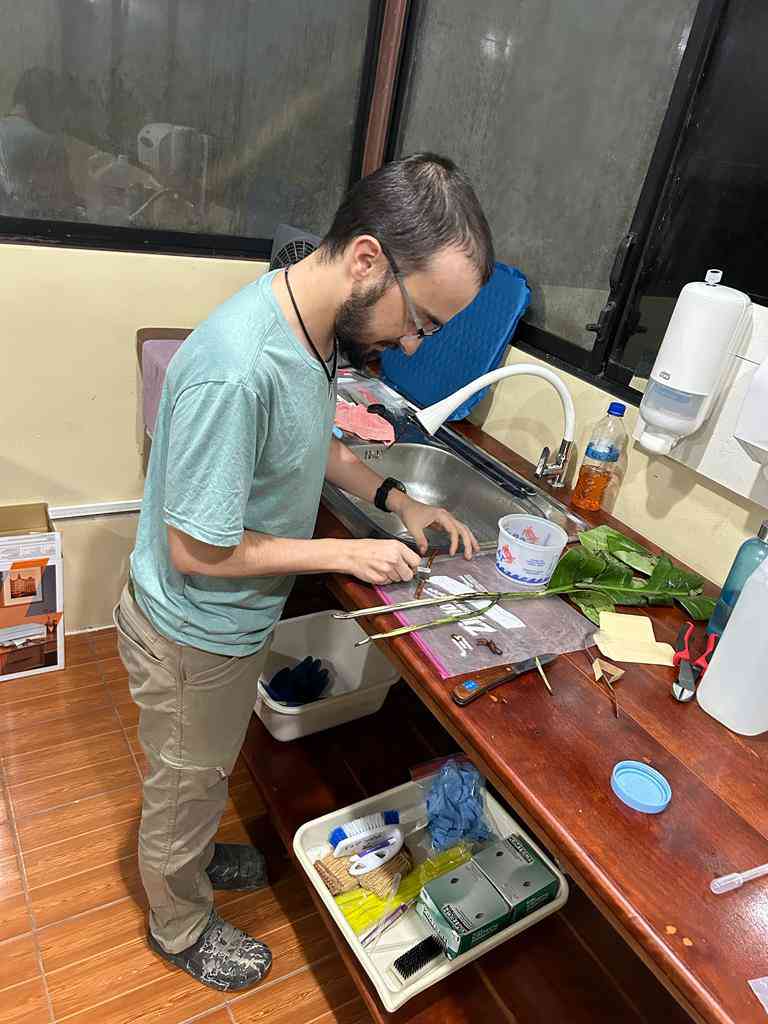Anthropology senior travels to Ecuador to study the medicinal benefits of native plants
Billy Browning ‘24 analyzed the effects and uses of the Spondias plant as a food source with medicinal properties on both monkeys and humans.

Anthropology senior travels to Ecuador to study the medicinal benefits of native plants
Billy Browning’s Anthropology classes had always sparked his interest despite starting at Miami as a Social Studies Education major. One day in class, Kelsey Ellis, assistant teaching professor, spoke to him about her research on the social behavior of woolly monkeys that she conducts every summer in Ecuador’s Yasuni National Park. He was invited to come along.
During the eight weeks he spent in Ecuador, Browning tracked woolly and spider monkeys to understand the effect of his focus plants. Initially, his main interest was a tree called Virola, as it has many medicinal uses such as the treatment of fungal infections and rashes. However, the plant wasn’t fruiting during the summer while he was there.

Billy Browning processes some plant samples to be dried.
He then shifted focus to a mango-like fruit, Spondias. This fruit is also known to have many medicinal uses such as dysentery and stomach ache and is a common food around the world. Despite the monkeys not being the sole focus of the research project, they were key to his study as the plant was part of their diet.
“We stayed in these little cabins in the Amazon forest,” Browning said. “We would get up every morning and follow the monkeys.”
While at the Tiputini Biodiversity Research Site, Browning was accompanied by Ellis and two other Miami undergraduate students, Nicholas Guetersloh and Noah Scruggs, who were involved in different research. Even though Ellis only stayed for four weeks, she trained the group on protocols and equipment while they communicated back and forth.
“Both Nicholas and Noah would collect samples for me,” Browning said. “We all had different projects, but we all tried to help each other out.”
Browning describes the highlight of his experience as learning from experts in the field. He also was pleasantly surprised at how much research he was able to do on the Spondias plants themselves.
“I was able to collect samples and prepare samples for different kinds of analysis, which I was pretty excited about,” Browning said.
He collected samples from monkeys to collect their DNA. Then, he would also gather samples from plant leaves which he dried, and analyzed fruit to determine ethanol levels. All the samples will be used for further research.
“We are actually going to try to use some code in Python [programming language] that will be able to analyze the pictures that we took while we were there to look at the fruit ripeness,” Browning said.
His research, which could lead to new drug discoveries to cure or treat diseases, centers on looking at the chemical compounds that make up these plants.
“I'm very interested in plant medicines, and I think with a lot of plant medicines there are folk uses or interactions that people have with plants that haven't really been evaluated,” Browning said.
After graduation, Browning plans to attend graduate school for ethnobotany, where he will continue studying medicinal plant uses.